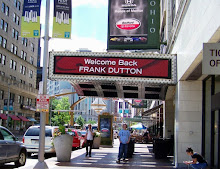The second day at the Allen was a little different than the first.
From the Plain Dealer Action Tab, March 17, 1972.I remember boxing popcorn, lots of popcorn, it came in big bags of prepopped, must have filled 4-500 boxes. I don't remember doing much else, eventually I'd develop an aversion to it, although back then it was a cheap snack, along with copious amounts of Pepsi-Cola. I learned the economics of popcorn here, it was cheaper than the boxes I was putting it in, pretty much the same for the soda, 7 oz cups cost more than the Pepsi it was poured in.
The other things I recall were how loud this was, it was deafening, and there were 2,860 people smoking marihuana. I was a 15-year-old freshman at Central Catholic who'd never been at an event like this, the minute the house lights went out, people would light up. It's illegal to smoke in theatre auditoriums, but no one seemed to be alarmed, even uniformed policemen who provided security for this "concert." I'd never been exposed to anything like that, and I remember talking to a policeman who said, "no big deal kid, and if you tried arresting anyone in here there'd be a riot." This was a very different message than what they were sending in school, or on telly. It would be hard to imagine Pete Malloy saying something like that on Adam-12. But this wasn't telly, it was real life in downtown Cleveland, and quite typical of rock shows in that era as I would soon find out.
The money raked in at the concessions is what was pretty much funding the Playhouse Square Association during that era. The memberships Bert LeGrande would bring in at $125 each would ebb and flow, making that concession money an important income source. Most of these shows were one-nighters put on by outside promotors, A Friend, Belkin, KDJ, etc., with the theatre rental monies, $800 weekdays, $1,000 weekend going to Millcapp Corp, the building's owners. Providing ushers and use of the marquee along with percentages of ticket sale through the Allen BO were other sources of revenue. The Playhouse Square Association was pretty much leading a hand to mouth existence at this point, with two of the four theatres facing demolition. Most people at the time thinking it was sheer folly to think these decrepit old buildings would ever be entertainment venues again.
From Scene, March 9 - 15, 1972.


No comments:
Post a Comment